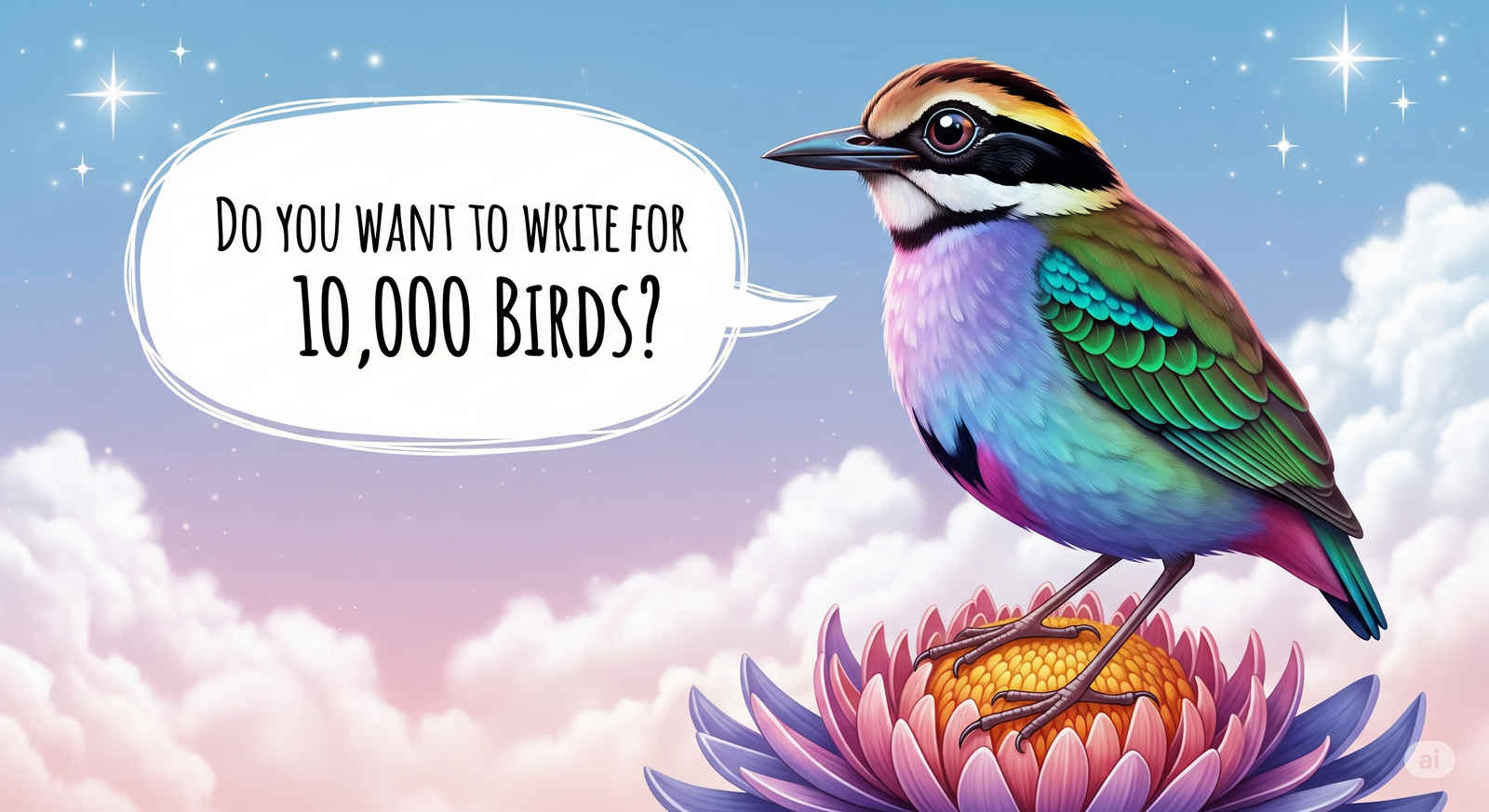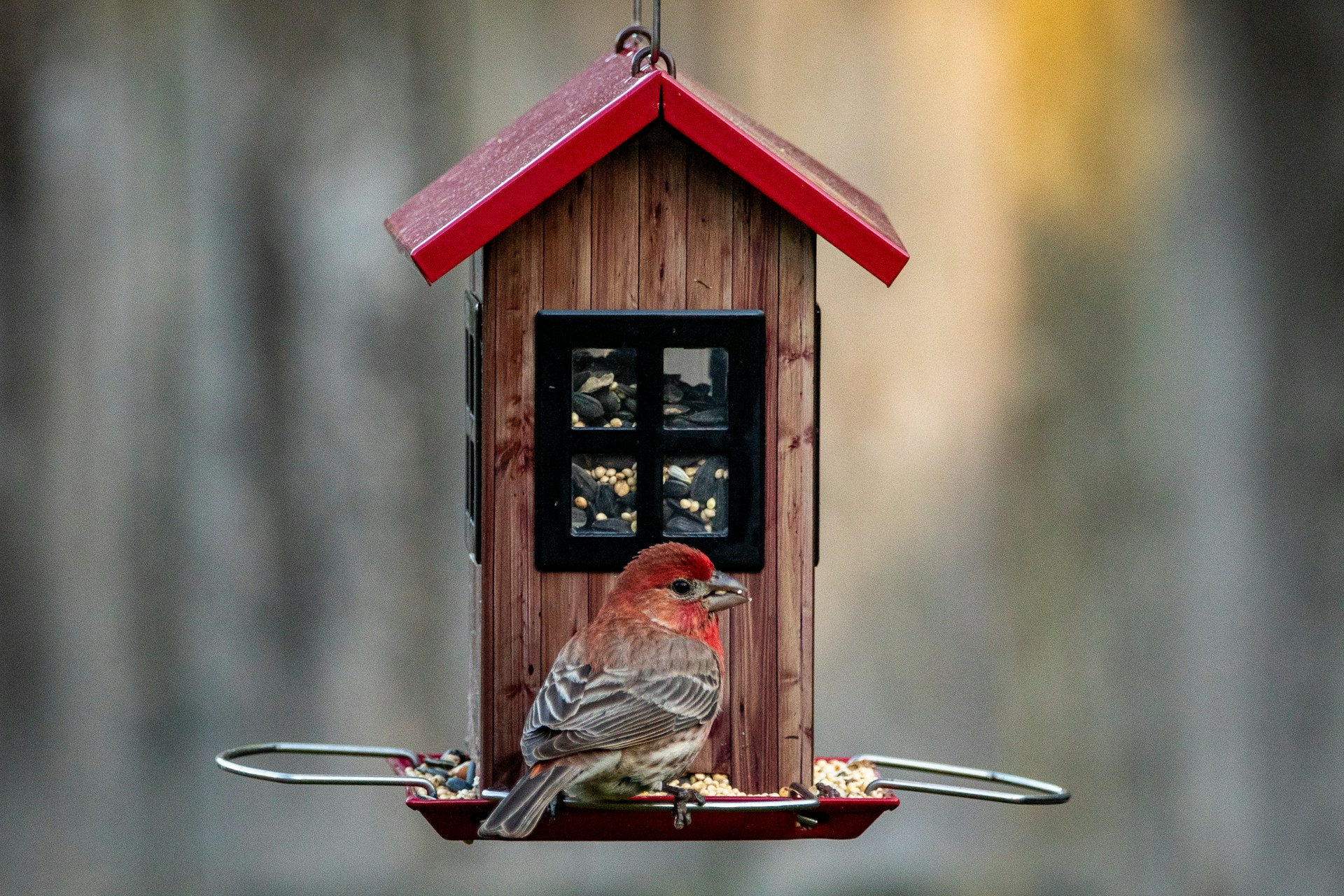PROTECT YOUR DNA WITH QUANTUM TECHNOLOGY
Orgo-Life the new way to the future Advertising by AdpathwayCrows might not immediately come to mind when you think about attracting birds to your garden; however, having them in your backyard has many great benefits. Firstly, crows are omnivores and consume a wide range of insects, grubs, and small rodents. They also help keep your garden tidy by eating carrion, old plant debris, and other organic matter.
Crows are known to be territorial and will often chase away predatory birds, such as hawks, which can be helpful if you have backyard chickens or other vulnerable animals.
Best of all, crows are highly intelligent and can form relationships with humans. Many people enjoy observing their behavior, and some have even received “gifts” from crows they’ve befriended.
In short, attracting crows can contribute to a healthier and more balanced garden ecosystem and be plenty of fun in the process.
 Photo by Ingrid Taylar
Photo by Ingrid TaylarBest Food to Attract Crows
Peanuts
Crows love peanuts, especially unsalted ones in the shell. This is a great way to start attracting them and leaving them in the shell, which provides stimulation for these clever birds.
Variety of Foods
Crows are omnivores, so they’ll eat a wide range of foods, including:
- Pet food (kibble)
- Eggs (hard-boiled)
- Fruits (berries, apples)
- Meat scraps (in moderation)
Avoid Harmful Foods
Avoid giving them foods high in salt or sugar, and also stay away from things like chocolate, caffeine, and avocados, as these can be toxic.
Feeding Location
Crows often prefer to feed on the ground or on wide, stable surfaces like platform feeders. They are large birds and often gather in numbers, so giving them plenty of room is best.
 Photo by Ianaré Sévi
Photo by Ianaré SéviProviding Water
Like many birds, crows use water for both drinking and bathing. Having a bath in fresh water helps crows maintain their plumage by removing dirt, parasites, and debris. It’s an important part of their preening routine, which also involves cleaning and arranging their feathers. This is what they are doing when they splash and ruffle their feathers in shallow water.
Having a bird bath is particularly important in warmer weather, as bathing helps crows regulate their body temperature. It is also documented that crows will use water to soften food.
Creating a Crow-Friendly Environment
Roosting Areas
Creating crow-friendly roosting areas involves understanding their preferences for safety, height, and social gathering. Crows prefer high vantage points. Tall trees are ideal, but if you lack those, consider providing alternatives. From these points, they like to survey their surroundings, so open areas near their roosting spots are appreciated.
Horizontal Perches
Crows favor horizontal surfaces for roosting. Sturdy branches, fences, and even purpose-built platforms work well. Consider installing a strong horizontal bar or platform if you don’t have suitable natural perches.
Safety and Shelter
Crows need to feel safe from predators. Dense foliage in trees can provide shelter. Minimize disturbances near their roosting areas, especially at dusk and dawn.
Social Gathering
Crows are social birds, so they prefer roosting in groups. Ensure there’s ample space for multiple birds to perch comfortably.
 Northwestern crow at Steveston Harbor, British Columbia, Canada on April 29, 2014. Photo by Gordon Leggett
Northwestern crow at Steveston Harbor, British Columbia, Canada on April 29, 2014. Photo by Gordon LeggettBuilding Trust
Consistency and routine are important as crows have excellent memories, and studies have shown they can think ahead. Feed them at the same time and in the same place each day. Crows are creatures of habit and will learn to expect food. But you must be cautious and careful, it may take time for crows to trust you. Be patient and avoid making sudden movements.
Crows are very smart and can recognize individual humans, so positive interactions will help build trust. Research has shown that crows will avoid humans that they feel have mistreated them.
Additional Tips For Attracting Crows
The common belief that crows are obsessed with shiny objects is actually a bit of a misconception. Scientific studies have largely failed to find evidence that these birds have a particular attraction to shiny objects. They think, however, that young corvids, like many young animals, are naturally curious and exploratory. They may investigate various objects, including shiny ones. This can lead to the impression that they’re particularly drawn to them.
Crows and other corvids can actually show neophobia, meaning they can be afraid of new objects. So, shiny objects may actually cause a fear response. There are anecdotal stories of crows bringing shiny objects to people they have formed bonds with. In these cases, it is thought that the crows are bringing gifts. Our advice is to not use shiny objects to attract them.
Crow Calls – Effective or Unethical?
While crows may well respond to recorded calls, the nature of their response can vary significantly. Crows are highly territorial, and playing recorded calls, especially those that mimic rival crows, can trigger a defensive response. They may approach the sound source, vocalize aggressively, or even engage in mobbing behavior.
Our understanding of the range of crow calls is limited, so you might think you are playing a harmless song, but for the crow, it could be an alarm or distress call. Both of these may well draw attention from the crow(s) but, again, not in the positive manner we want. Our advice is to not use recorded calls to attract crows.
Decoys – Effective or Pointless?
The use of crow decoys can have varying effects on attracting crows to your garden, and it’s important to understand how crows perceive these decoys. Crows are social birds. If they see what appears to be other crows gathered in an area, they may be more inclined to investigate. This can be especially true if the decoys are placed in a way that mimics natural crow gatherings.
Depending on how the decoys are arranged, however, they could also trigger territorial responses. Crows may approach to investigate or challenge the “intruders.”
Crows are highly intelligent and can quickly learn to distinguish between real crows and decoys. If the decoys are static and unchanging, crows may eventually ignore them. Using crow decoys in conjunction with other attractants, such as food and water, is more likely to be effective.
You should probably consider the potential impact on crows’ behavior and avoid causing unnecessary stress. Our advice is to try them by all means, but other methods of attracting crows will probably work better.
 Photo by Varik Valefor
Photo by Varik ValeforFinal Thoughts
Crows are fascinating creatures, full of personality, intelligence, and humor. They have had a bad reputation for generations, but by attracting them to your garden and getting to know them as individual birds, you will surely appreciate them in a whole new way. By following these tips, you can create a welcoming environment for crows and enjoy their interesting presence in your yard.























 English (US) ·
English (US) ·  French (CA) ·
French (CA) ·